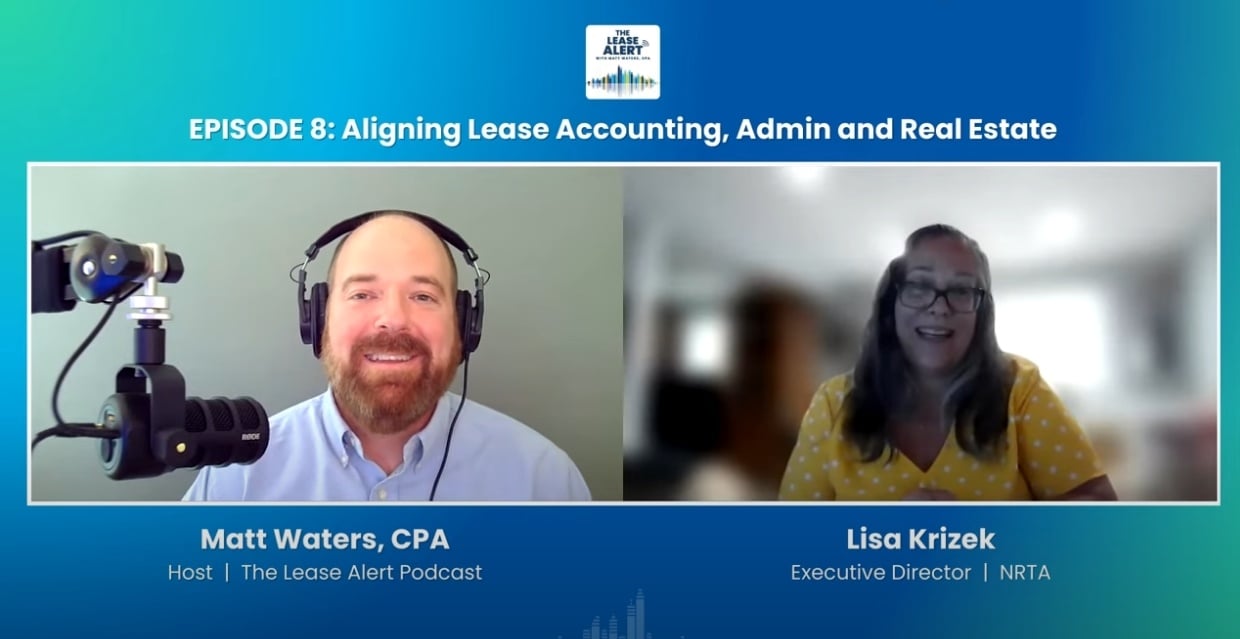Share this
by Mark McDonald on December 14, 2023
The Securities and Exchange Commission is still percolating on how companies must report ESG data.
But savvy CRE leaders aren’t waiting to be told what to do. They’re getting ready now by collecting facility related ESG data to avoid the mad rush that’s inevitably coming.
ESG (environmental, social and corporate governance) performance can greatly affect a real estate team's operations. While these three issues are impossible to untangle from one another, the “E” is especially significant for the commercial real estate sector.
“Commercial real estate owners, occupiers and businesses will likely need to develop plans to decarbonize portfolios quickly, and at scale,” CBRE says in a recently published carbon-reduction guide.
Environmental factors can and will impact business practices, finances and reputation. ESG data capture is essential for any company with investors, customers, employees, and regulators in the United States who prioritize sustainable and responsible business practices.
Five key areas will bear the brunt of decarbonization efforts.
![]()
Environmental impact
Energy efficiency
The commercial real estate industry is under pressure to reduce their carbon emissions. After all, buildings are responsible for 37% of global carbon emissions and 34% of energy demand worldwide, according to the UN’s 2022 Global Status report for Buildings and Construction.
Buildings are responsible for 37% of global carbon emissions and 34% of energy demand worldwide.

United Nations Environment Programme
2022 Global Status Report for Buildings and Construction
Using energy-efficient technologies like smart building systems, renewable energy, and efficient HVAC can lower environmental impact and operational costs. That’s a win for businesses and the environment.
Green building certifications and amenities
Many real estate teams are seeking green building certifications to demonstrate their commitment to sustainability. LEED (Leadership in Energy and Environmental Design) certification is a prominent choice.
There’s also a significant focus on green amenities like electric vehicle (EV) charging stations, smart-building technology, composting stations, recycling programs and community gardens, writes ButterflyMX, a security service provider focused on multi-family communities. These features are crowd-pleasers that also achieve a positive, measurable environmental impact.
Such enhancements can increase property value, attract tenants and improve the corporate image. Your marketing team says, “thank you in advance.”

The CoStar commitment to green buildings
Read more on CoStar News
Sustainable site selection
Companies are now considering the environmental impact of their office locations. This includes proximity to public transport, walkability and access to parks.
“The location of a building is as important as how it is built. Its connection and linkage to the local bioregion, watershed, and community will help determine how a project can contribute to a sustainable environment,” wrote the U.S. Green Building Council (USGBC) all the way back in 2014. Now, nearly ten years later, enterprise organizations are catching up.
 Social impact
Social impact
Employee well-being
As recruiting and retention woes reach a crescendo after the COVID work from home era, ESG can be a powerful tool in employers’ and tenants’ pockets.
The location and design of corporate real estate have been proven to impact employee well-being and productivity, reports Corporate Wellness Magazine. Offices that prioritize natural light, indoor air quality, and comfortable workspaces can improve employee satisfaction and engagement.
“Employees and jobseekers want to feel an affinity with their employer,” reports Forbes Magazine, “with nine in ten people surveyed by Tiger Recruitment agreeing they couldn’t work for an organization that didn’t share their values.
The research goes further, revealing that around half of U.S. employees would consider quitting if they disagreed with their company’s values, especially around issues such as the environment and social equality.

Could ESG efforts solve the accountant shortage?
One CPA thinks so. Read more.
Community engagement
Corporations with real estate holdings often engage with local communities. Contributing positively to the local environment, economy, and community infrastructure can enhance a company's social reputation and relationships.
“A sustainable project serves more than the immediate function of the building.” Continued the USGBC, “It must also meet the needs of the local community, support active street life, promote healthy lifestyles, provide ecosystem services, and create a sense of place.”
Investor interest
“In a survey of senior executives, 97% said that external stakeholders have the most influence on a company’s ESG reporting and disclosure policy,” reports Deloitte.
“These stakeholders understand this work is much bigger than a simple tick-the-box exercise. Because it’s about business fundamentals. It’s about risk and opportunity. It’s about strategy and company performance and unlocking future value. And investors want to know how you’re taking action.”
ESG-conscious investors are increasingly looking to allocate their capital to companies that demonstrate responsible and sustainable practices. Corporations that prioritize real estate ESG can attract a wider pool of investors and potentially lower their cost of capital.
Governance impact
Transparency and reporting
Demonstrating transparency in real estate practices, including property management, lease agreements and tenant relationships, aligns with good governance principles.
Proper corporate sustainability reporting related to real estate holdings can build investor and stakeholder trust.
CoStar Real Estate Manager Director of Lease Accounting, Matt Waters, CPA, believes that SEC-mandated ESG reporting will serve as an antidote to the ongoing accountant shortage. “ESG reporting requires the same analytical and critical thinking skills needed for accounting. Businesses need to collect high quality, auditable ESG data with proper controls in place for accuracy and completeness,” said Waters.
Risk management
For many lease management and commercial real estate professionals, ESG efforts are not a personal calling. It feels like just another thing that they have to do because outside forces are telling them too.
But proper governance practices in real estate can mitigate potential legal, regulatory, and financial risks. Which is a boon for individual companies and the CRE industry as a whole who want/need to align with local and global regulations. This includes compliance with zoning regulations, building codes, financial reporting, and other legal requirements.
Furthermore, considering the resilience of properties to climate-related events can mitigate the risk of damage or disruption.
Including corporate real estate in a company's ESG reporting demonstrates its commitment to sustainable and responsible business practices. It also enhances transparency and provides stakeholders with information about its environmental, social, and governance performance.
Financial performance
Companies that incorporate strong ESG practices can experience improved financial performance over the long term. Energy-efficie1nt buildings tend to have lower operating costs and can command higher rental rates, enhancing overall returns on investment.
McKinsey & Company calls the combination of revenue growth, profitable growth and ESG priorities “the triple play.” An analysis in Aug. 2023 shows a strong correlation between financial success and the integration of ESG priorities into a company’s growth strategies.
“The message is clear: not only can you do well while doing good—you can do better.”
The message is clear: not only can you do well while doing good—you can do better.
 Resilience in changing markets
Resilience in changing markets
ESG considerations can contribute to a corporation's flexibility in a rapidly changing business landscape. For instance, properties designed with climate resilience in mind may be better positioned to weather (no pun intended) the impacts of climate change.
And creating a reputation of being responsible stewards of the environment will last long beyond initial requirements.
Execution
Merging ESG reporting and corporate real estate involves a long list of steps but as you can see, they’re steps worth taking.
To measure success, companies will need to:
- Collect relevant data.
- Set targets.
- Establish key performance indicators (KPIs).
Companies will have the option to report ESG metrics in their annual reports, sustainability reports, or dedicated ESG reports. All of which investors, stakeholders, and regulators are increasingly expecting.
Companies can also leverage third-party frameworks and guidelines to ensure standardized and comprehensive ESG reporting that includes corporate real estate considerations. For example, the Global Reporting Initiative (GRI) or the Sustainability Accounting Standards Board (SASB).
So, now we know that ESG means environment, social and governance. But it also means better public perception, increased profitability, improved employee retention and hiring, longevity for your organization and a healthier planet for all.
If you’re a CoStar customer who’s ready to add ESG to your tech stack, contact your company's authorized support contact and tell them to put in a ticket today.
If you’re not a CoStar customer and want to hear more on ESG data capture and how it affects lease management professionals, check out this recent webinar.
Share this
- Lease Accounting Software (90)
- ASC 842 (83)
- Accounting Teams (53)
- Lease Administration Software (27)
- Retail Tenants (16)
- Commercial Real Estate (14)
- Lease Management (13)
- Real Estate Teams (10)
- ESG (8)
- Market Data and Analytics (8)
- Success Stories (8)
- News and Media Coverage (5)
- Transaction Management Software (2)
- frs 102 (2)
- Customer Success (1)
- Office Tenants (1)
- December 2025 (1)
- September 2025 (1)
- July 2025 (2)
- June 2025 (4)
- May 2025 (2)
- April 2025 (2)
- March 2025 (6)
- February 2025 (3)
- January 2025 (4)
- December 2024 (1)
- October 2024 (4)
- September 2024 (2)
- August 2024 (4)
- July 2024 (3)
- June 2024 (3)
- May 2024 (4)
- April 2024 (1)
- February 2024 (1)
- December 2023 (4)
- November 2023 (6)
- October 2023 (4)
- September 2023 (2)
- August 2023 (2)
- July 2023 (3)
- May 2023 (2)
- March 2023 (1)
- February 2023 (3)
- January 2023 (1)
- December 2022 (3)
- November 2022 (4)
- October 2022 (4)
- September 2022 (1)
- August 2022 (4)
- June 2022 (1)
- May 2022 (4)
- April 2022 (8)
- March 2022 (3)
- February 2022 (1)
- January 2022 (2)
- November 2021 (2)
- October 2021 (2)
- September 2021 (3)
- August 2021 (15)
- July 2021 (3)
- June 2021 (1)
- May 2021 (1)
- April 2021 (3)
- March 2021 (1)
- January 2021 (1)
- December 2020 (3)
- November 2020 (1)
- October 2020 (2)
- September 2020 (2)
- August 2020 (3)
- July 2020 (2)
- June 2020 (3)
- May 2020 (1)
- April 2020 (1)
- March 2020 (1)
- February 2020 (1)
- December 2019 (1)
- October 2019 (1)
- September 2019 (2)
- August 2019 (3)
- July 2019 (2)
- April 2019 (69)
- October 2018 (1)
- August 2018 (1)
- July 2018 (1)
- June 2018 (1)
- May 2018 (1)
- April 2018 (2)
- March 2018 (3)
- February 2018 (2)
- December 2017 (1)
- August 2017 (3)
- June 2017 (2)
- May 2017 (2)
- April 2017 (1)
- March 2017 (2)
- January 2017 (2)
- November 2016 (2)
- July 2016 (1)
- June 2016 (1)
- July 2015 (1)
- March 2015 (1)
- June 2014 (1)
- April 2014 (11)
- October 2011 (1)
You May Also Like
These Related Stories

The Largest ESG Reporting Case Study: Lease Accounting

Which Way Are the Winds Blowing on Sustainability Reporting?



